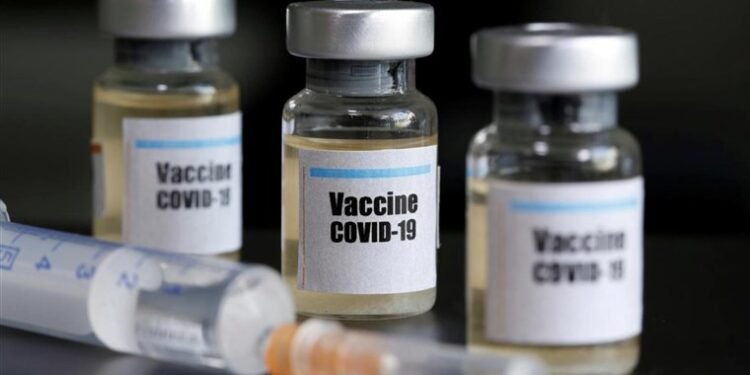A potential vaccine named AZD1222 ( previously known as ChAdOx1 nCoV-19) which was developed by the University of Oxford and licensed to AstraZeneca, a British drug manufacturer has produced a strong immune response in a large, early-stage human trial.
This is according a publication on Monday in the medical journal The Lancet. The vaccine which produced both antibodies and killer T-cells to combat the infection and did not result in any serious side effects according to the researchers.
Participants in the trial which involved over 1,000 healthy individuals developed neutralizing antibodies which scientists believe is important in gaining protection against the virus.
According to the researchers, minor side effects such as fatigue and headache were the most commonly reported. Others include pain at the injection site, muscle ache, chills and a fever.
The primary objective of the study was to evaluate the immune response and safety of the vaccine, and to determine the most suitable dose for a phase 3 trial.
The trial found that 95% (241/253) of participants in the high dose group & 91% (118/129) of the recipients in the low dose group showed either T cell or antibody immune responses at day 28 post-vaccination.
“There is still much work to be done before we can confirm if our vaccine will help manage the COVID-19 pandemic, but these early results hold promise,” University of Oxford Professor Sara Gilbert said in a statement Monday.
- Read more; Covid-19 Vaccine Trial by Pfizer show signs of hope
- China to start Covid-19 Vaccine trial in Brazil
AstraZeneca’s is among the leading vaccine candidates against a pandemic that has infected over 14.5 million people and claimed more than 606,000 lives according to John Hopkins Coronavirus Resource Centre.
The company has doubled its production capacity as it ramps up efforts to ensure that the potential vaccine is readily available for distribution once it is approved.
AstraZeneca has signed deals with U.S, UK, Europe for the supply of its early batch of the vaccine once it is approved. The company also signed an agreement worth $750 million with Bill Gates backed organizations CEPI and GAVI which will ensure early supply to lower income countries.
Last week, biotech firm Moderna released promising data on its potential coronavirus vaccine trial, saying it generated a “robust” immune response. That trial included 45 healthy participants and was run by the National Institutes of Health.
Although the results of these trials are promising, it is unclear to scientists whether antibodies produced in response to Covid-19 offer protection against getting infected again. Since the virus is still anew virus and hasn’t been studied in depth yet, scientists are hoping antibodies can provide some level of protection against the virus.
Written by;
Ifunanya Ikueze





















































